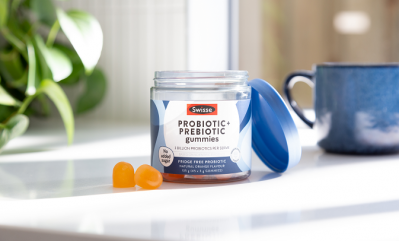Growing gains: Four key categories for growth highlighted by thriving Australian supplements sector

Meanwhile, in terms of export destinations, the UAE and UK were highlighted as potential growth markets.
The association highlighted the above in their Industry Audit report 2022, which stated that the industry revenue of the complementary medicine market had hit AUD$5.5bn (US$3.7bn), which was up 1.4 per cent.
A breakdown shows that AUD$2.6bn of the revenue comes from vitamin dietary supplement sector, followed by sports at AUD$945m, herbal products at AUD$640m, weight management at AUD$440m, and exports at AUD$864m.
Citing data from Euromonitor, complementary medicines for immune health has reported the biggest growth last year, followed by beauty, mood/relaxing, energy, and bone health.
However, the market for sexual health, diabetes, allergies, and urinary health products have shrunk.
In turn, the CMA has identified immunity, natural beauty, healthy ageing, and pet health as categories for growth opportunities.
“We are seeing growth in immunity and natural beauty areas as we start to recover from COVID-19.
“Consumer sentiment indicates more focus and interest on immunity products and the beauty category is seeing a resurgence,” Carl Gibson, CEO of CMA, said in response to queries from NutraIngredients-Asia.
He added that healthy ageing and pet health were the other increasingly popular categories among member companies.
“We have seen major sponsors and brand owners invest in pet health and expect this category to grow as consumers look after their cats and dogs acquired during COVID which kept them company during the pandemic.
“Healthy ageing is a growing category as the population ages which was identified by the Growth Asia summit [organised by NutraIngredients-Asia],” Gibson added.
According to the report, three out of four people regularly use complementary medicine, and there has been a shift in sales channels due to the pandemic.
“During the last year, 7.5 per cent swung away from purchasing in traditional pharmacy to the grocery channel.
“[There was] less foot traffic in traditional retail outlets and consumers choosing to spend less time in stores.
“The direct selling channel has also adapted, and after an initial dip in sales, now holds steady,” the audit report said.
UK, UAE the next big opportunity?
While China, Hong Kong have been the biggest export markets for Australia’s complementary medicines, with India and Vietnam on the rise, the CMA is also seeing potential in markets such as the UK and UAE.
“CMA identified the UK as a potential new market with the ink still wet on the Free Trade Agreement,” Gibson said.
Australia and the UK signed the Free Trade Agreement last December.
“The UAE is a great hub for that region and India and Indonesia are potentially red, hot markets for our exports highlighted in an Export Connect report commissioned by CMA,” he added.
The Export Connect report was commissioned by the CMA only available to its members to inform them of the potential export markets scored against key criteria.
Australia’s complementary medicines export market revenue was down six per cent to AUD$864m, according to the industry audit report.
The majority of the exports, 66 per cent, went to China and Hong Kong, despite a 22 per cent decline in revenue from both markets.
Vietnam was the second largest export market, with 10 per cent of the export going to the South East Asia country.
Examples of complementary brands present in Vietnam include Blackmores, Swisse, EZZ Life Science has also mentioned Vietnam as one of markets that it would like to operate via e-commerce.
Exports to the Oceania consisted 8.5 per cent, South Korea at three per cent and the rest of the world at 12.5 per cent.
Boosting manufacturing
The complementary medicine sector was highlighted by the Australian government as one of the five sectors slated for investment and growth.
As such, the CMA is partnering the government to strengthen product manufacturing in Australia.
“CMA is working in partnership with the Australian government to help boost home grown manufacturing of complementary medicines as part of the modern manufacturing strategy.
“Our sector was one of just five identified by the government to invest and grow through creating highly skilled jobs, supporting innovative product development in Australia and helping Australian companies become globally competitive with high quality products with to boost our export potential,” Gibson said.


















